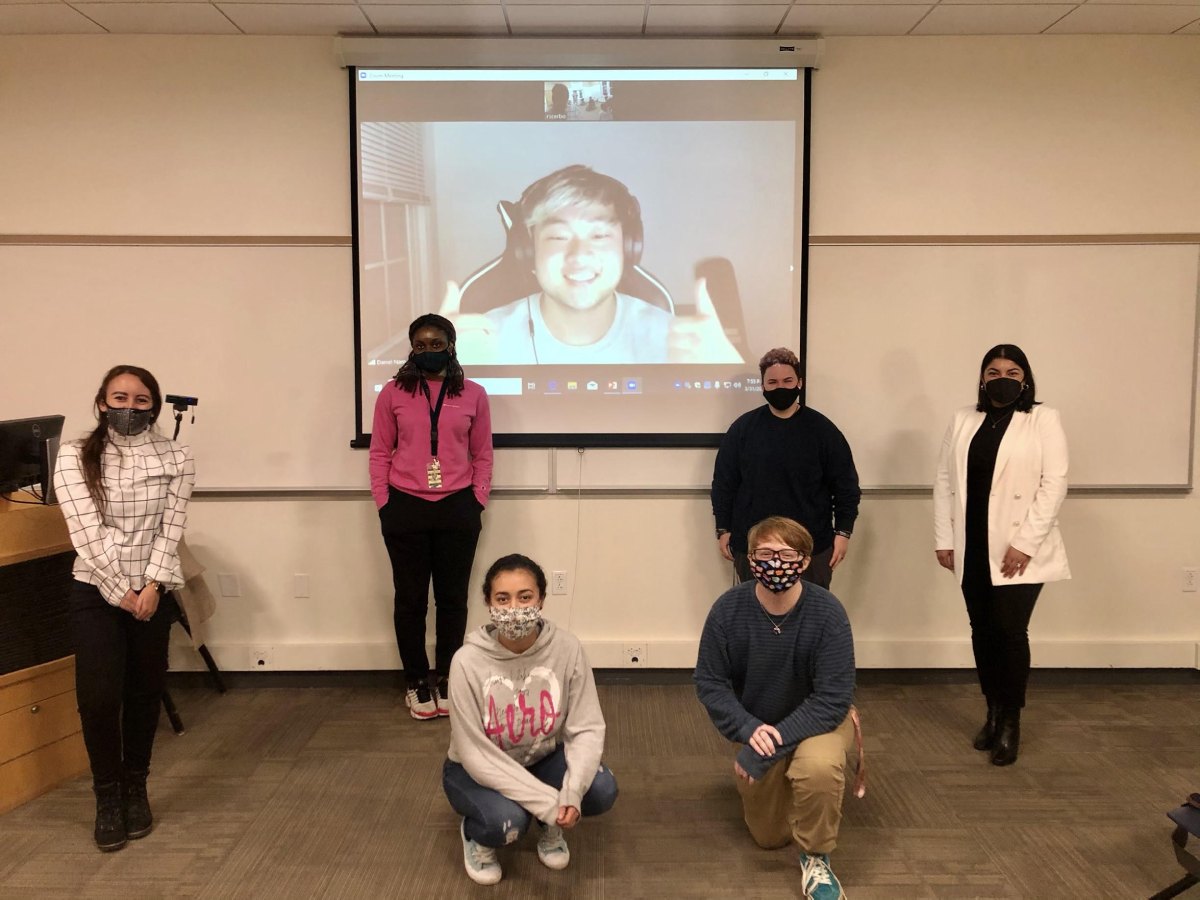
Lupita Gonzalez and Rosita Scerbo each benefited from mentorship on their paths from growing up in immigrant families to enrolling as first-generation college students to earning their doctorates.
 Now, as Allegheny College faculty members, they’ve in turn embraced the role of mentor. Gonzalez and Scerbo have co-founded a new lab designed to enhance opportunities for Black, Indigenous, and People of Color (BIPOC) students to gain research experience and visibility.
Now, as Allegheny College faculty members, they’ve in turn embraced the role of mentor. Gonzalez and Scerbo have co-founded a new lab designed to enhance opportunities for Black, Indigenous, and People of Color (BIPOC) students to gain research experience and visibility.
Building on Allegheny’s nationally recognized commitment to undergraduate research, the Intersectional Culture & Psychology Lab (ICPL) draws on Gonzalez and Scerbo’s scholarly expertise and their experiences as undergraduate and graduate students.
“Compared to other social groups, minority women and non-binary people in particular face greater challenges,” Scerbo said. “Especially at the beginning of college and their careers, they can experience isolation. They can experience discrimination and low self-esteem. They can feel like outsiders. The experience in our lab would help replace the impostor syndrome I also suffered from growing up with a sense of belonging. And then when they are out in the world, they can implement what they have learned with us not only to survive but also to succeed.”
The lab also helps to convey to students that they can pursue academic careers, Gonzalez said. “I had a really great mentor — Dr. Dwight Krehbiel — as an undergrad. Because he made such a big difference in my life, I want to pay it forward and share that knowledge with other students who may be going through similar things.”
Gonzalez is an assistant professor of psychology in her first year on the Allegheny faculty; she holds a Ph.D. in cognitive neuroscience from the University of Texas at Austin. Scerbo is an assistant professor of U.S. Latinx culture in her second year at the College; she holds a Ph.D. in Latin American and Latinx literature and visual studies from Arizona State University.
The ICPL melds Gonzalez and Scerbo’s respective research interests through an intersectional lens. That approach, Scerbo said, recognizes that not all people experience the same levels of discrimination and marginalization. It accounts for different aspects of a person’s identity, such as race, location, gender, class, and disabilities.
Through the ICPL, Gonzalez and Scerbo are also working to break boundaries between the humanities and the sciences.
“Yes, we use different methods. We come from different perspectives, but we’re looking at many of the same subjects and issues and look for common solutions that we want to implement,” Scerbo said. For example, both Gonzalez and Scerbo address issues related to oppression, discrimination, privilege, and stereotypes in their courses.
Incorporating ideas from the humanities can help lead to scientific research that is fairer and more equitable, Gonzalez said. She pointed to the example of psychological studies that have relied primarily on populations from backgrounds that are Western, educated, industrialized, rich, and democratic — or “WEIRD” backgrounds in psychological parlance.
“If we’re not listening to the voices of marginalized people in the sciences, and if we’re not studying them and working to understand their experiences, how can we say that we are studying human beings in general if we’re not taking into account these marginalized groups?” she explained.
To that end, the ICPL aims to help students see themselves in the research they are conducting. “We want to help students not only do research, but see that it’s possible to do research that could directly affect their communities,” Gonzalez said.

Intersectional Cultural and Psychology Lab student research assistants with Professors Rosita Scerbo and Lupita Gonzalez
Gonzalez and Scerbo have selected the first cohort of six ICPL student research assistants. Their initial projects focus on the mental health of BIPOC students at predominantly white institutions (PWIs) and the perceptions of wrongfully convicted BIPOC women exonerees.
The ICPL will also have a strong focus on students’ professional development. Gonzalez and Scerbo plan to help students raise their visibility and showcase their skills through conferences, publications, and presentations. Students will receive guidance on seeking letters of recommendation, developing résumés and curriculum vitae, and applying to graduate school or jobs.
“I want all of our research assistants to be placed in a job or a grad program right after Allegheny,” Gonzalez said. “My goal is to have them set for their first step after graduation.”
Added Scerbo: “There are just so many ways in which students and their critical perspectives really surprise me at Allegheny, and that’s why I’m so excited to continue to work with Professor Gonzalez. We see a lot of potential with the young minds we have here.”
Follow the Intersectional Culture & Psychology Lab on Instagram @icpl_ac.




